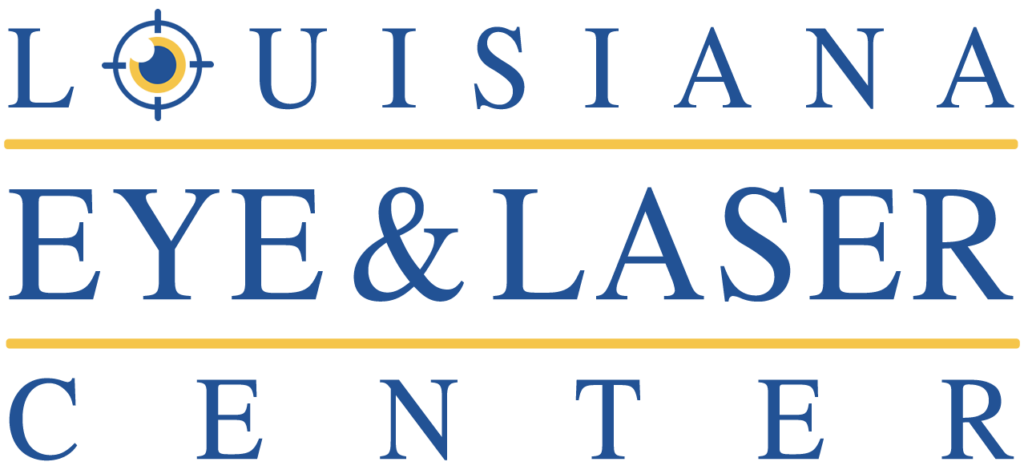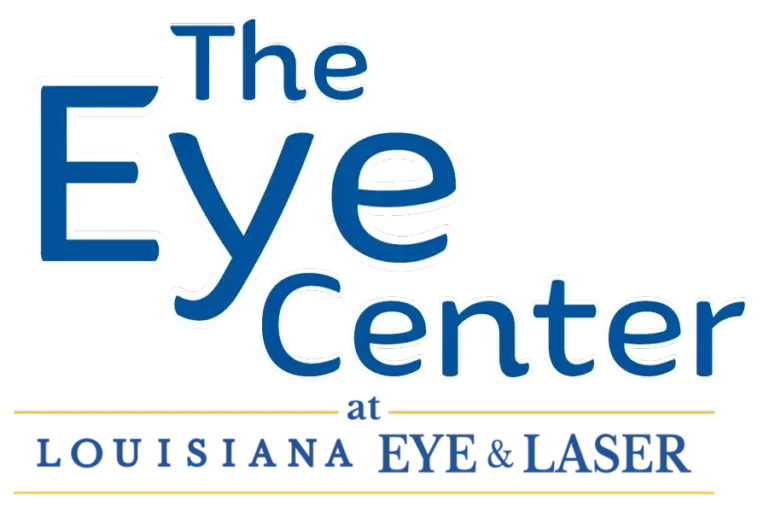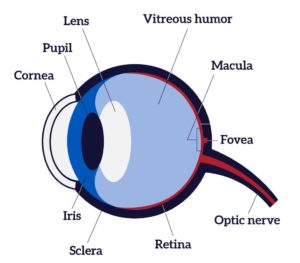
The retina is one of the most important parts of your eye and is even considered an extension of your brain! Because your retinas are so crucial to your vision, it is important to make sure they are healthy and properly functioning. Read on below to learn more about the retina as well as answers to common questions from patients.
Table of Contents:
Many patients with retinal diseases may be unaware or without symptoms at first. At Louisiana Eye & Laser, we can ensure your retinal health with an eye exam from one of our experts. Just call, go online or stop by one of our 14 Louisiana locations to schedule your appointment!
What does your retina do?
The retina is a thin layer of nerve cells that lines the back of the inside of the eye, near the optical nerve. The retina uses photoreceptor cells to detect light entering the eye and then sends signals to the brain through the optical nerve. These signals ultimately become the images we see. Because it is so vital in processing light, ophthalmologists often call the retina an extension of the brain. If the retina becomes damaged, retinal tissue cannot be repaired. This may cause impairment or even complete loss of vision.
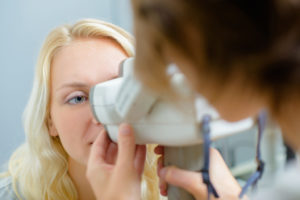
Retina Diseases
There are a number of different eye problems that affect the retina. Most of these can lead to impairment or even complete loss of vision. Some more common problems include:
Torn or detached retina
This occurs when the retina is lifted or pulled from its normal position. There are several reasons that this may happen. The most common cause of retinal detachment is when a tear or break in the retina occurs. This allows fluid to get under the retina and cause a separation. Retinal detachment is a very serious problem that can result in vision loss and must be treated immediately.
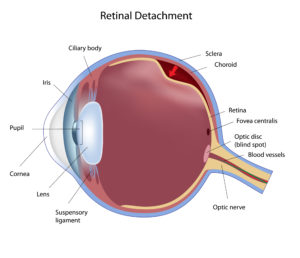
Age-related Macular Degeneration (AMD)
The macula is the central part of the retina. When the macula deteriorates, peripheral (side) vision remains normal, but the central vision sharply declines, ultimately leading to blindness. AMD is an incurable disease, but your eye doctor can help track the progression of the disease and recommend lifestyle changes.
Diabetic Retinopathy
The most common eye disease among diabetics is Diabetic Retinopathy, which is also the leading cause of blindness in American adults. Diabetic Retinopathy affects those with both type 1 and type 2 diabetes. It occurs when damaged blood vessels in the retina cause swelling or abnormalities in the retina. Patients may not experience symptoms initially, which is why everyone with diabetes should have a dilated eye exam at least once per year.
Flashers or floaters
Flashers and floaters are quite common and are not always a threat to your vision. Flashers related to the retina are quick twinkles that look like lightning streaks in the peripheral vision. Floaters are small clouds that appear in your vision as squiggly lines, cobwebs or floating bugs. If you notice a new or sudden onset of flashers or floaters, it could be an early sign of a torn retina. Normally, a torn retina can easily be repaired with laser treatment as long as it is caught in the early stages, after symptoms first appear.
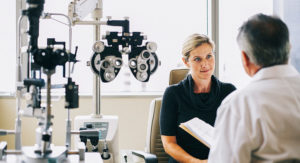
Is there anything I can do to prevent retina disease?
The best defense against most retina diseases is to have your eyes examined regularly. Paying careful attention to any changes in your vision or early signs of retina disease can potentially save your vision in the event that there is a problem. Risk factors vary between diseases, but some of the most at-risk groups include patients who:
- Have a family history of retinal detachment or AMD
- Are diabetic
- Are over the age of 50
- Have had a serious eye injury
- Lead an unhealthy lifestyle
Retina Care at Louisiana Eye & Laser
After more than 40 years, we’ve treated retina disease in countless patients. Whether you are experiencing symptoms of retina damage or if it’s just been a while since you’ve had your last exam, the experts at Louisiana Eye & Laser are here to help! Call, go online or stop by one of our offices to schedule an eye exam or retina treatment today. At Louisiana Eye & Laser, we’re happy to help you live your life to the fullest with the clear vision you deserve.
